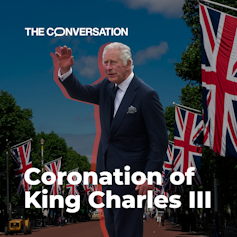Nearly 30 years ago, the then-Prince Charles indicated that as king he wanted not just to inherit the monarch’s traditional title of “defender of the faith”, but also to be a “defender of faith”. The monarch swears oaths of commitment to Protestantism and as supreme governor of the Church of England, but Charles has repeatedly said he also wants to be a protector of all main religious faiths, non-Christian as well as Christian.
For decades, royal observers have speculated about the shape the coronation might take in an age of greater devolution, religious pluralism and increased secularisation. Contrary to some proposals for its reform or even its replacement by a civil ceremony, the new coronation liturgy remains a Church of England service. But seeking balance between old and new, it is now considerably expanded in its symbolic scope, with a larger and more diverse cast of religious participants.
The liturgy is as finely crafted as one would expect of a text which will have been prepared over several decades of negotiations between leaders of the church, their liturgical experts, palace officials, civil servants and representatives of the different churches and faiths. It attempts to adapt a very old rite, with medieval origins and largely unchanged since the Reformation of the 16th century, into a ritual with contemporary resonances.

This piece is part of our coverage of King Charles III’s coronation. The first coronation of a British monarch since 1953 comes at a time of reckoning for the monarchy, the royal family and the Commonwealth.
For more royal analysis, revisit our coverage of Queen Elizabeth II’s Platinum jubilee, and her death in September 2022.
The homage by hereditary aristocrats is replaced by an homage of the people. Where once there was exclusion there is now inclusion. For the first time, women conduct elements of the ceremony. Rishi Sunak, Britain’s first Hindu prime minister, will recite a biblical verse.
The most striking difference from the 1953 coronation service is the participation by members of non-Christian faiths. The liturgy opens with a procession of leaders and representatives of faith communities. The presentation of regalia to the king has been made more elaborate, chiefly in order to accommodate actions by Muslim, Jewish, Hindu and Sikh members of the House of Lords.
The end of the ceremony includes a greeting spoken collectively by leaders and representatives of the Jewish, Hindu, Sikh, Muslim and Buddhist communities. This statement spells out the leading theme of “public service” that has been added to the traditional service of consecration of the king:
Neighbours in faith, we acknowledge the value of public service. We unite with people of all faiths and beliefs in thanksgiving, and in service with you for the common good.
Prayers during the blessing are said by leaders of the Greek Orthodox church in Britain, the Free Churches, and Churches Together in England, and even more notably, given the historic Protestantism of the monarchy and the British state, by the Roman Catholic archbishop of Westminster.
One innovation in 1953 was that a copy of the Bible was presented to the queen by the moderator of the general assembly of the Church of Scotland, the head of the second established church in the UK. Now, the archbishops of the Church of Ireland, the archbishop of the Church in Wales and the primus of the Episcopal Church of Scotland will assist with various acts. Music will be sung in Welsh, Scots Gaelic and Irish Gaelic.
Coronation for a modern audience
For the modern and global audience of millions expected to watch the ceremony, many of the ancient elements of the coronation will need to be explained. Not just the meanings of seemingly archaic words, actions and regalia, but also their intended symbolism and relevance for contemporary society. With this in mind, a second version of the liturgy has been published, with added commentary, and a sermon by the archbishop of Canterbury (omitted in 1953) is now re-introduced to enable further explanation.
In effect, the whole ritual has been revised. The ancient structure and actions are retained, but many of the accompanying words have been redrafted and shortened. The holy communion, integral for the consecration of a Christian monarch, is conducted not according to The Book of Common Prayer used since 1559, but by extracts from Common Worship, introduced in 2000.
The religious oaths, which are required by long established laws and are awkward matters to have altered by parliament, are preceded by a qualification. The archbishop declares the Church of England, which the king swears to uphold, is committed not just to “the true profession of the Gospel”, but also to “foster an environment in which people of all faiths and beliefs may live freely”.
Read more: King Charles III's coronation oath is a crucial part of the ceremony – experts explain
Leaders of other churches have had parts in great royal and national services since the 1980s, and other faith communities have been represented for over 20 years.
At a faith reception during her diamond jubilee year in 2012, Queen Elizabeth II expressed her belief that the church’s purpose should include protection of the free practice of all faiths in Britain.
As the symbolic head of the nation, the monarch has to try to be representative. In a transformed religious culture, the Church of England has needed new ways to justify its privileged status as a national and established church. All this explains the re-styled coronation of King Charles III.
Philip Williamson has received funding from The Leverhulme Trust.
This article was originally published on The Conversation. Read the original article.







